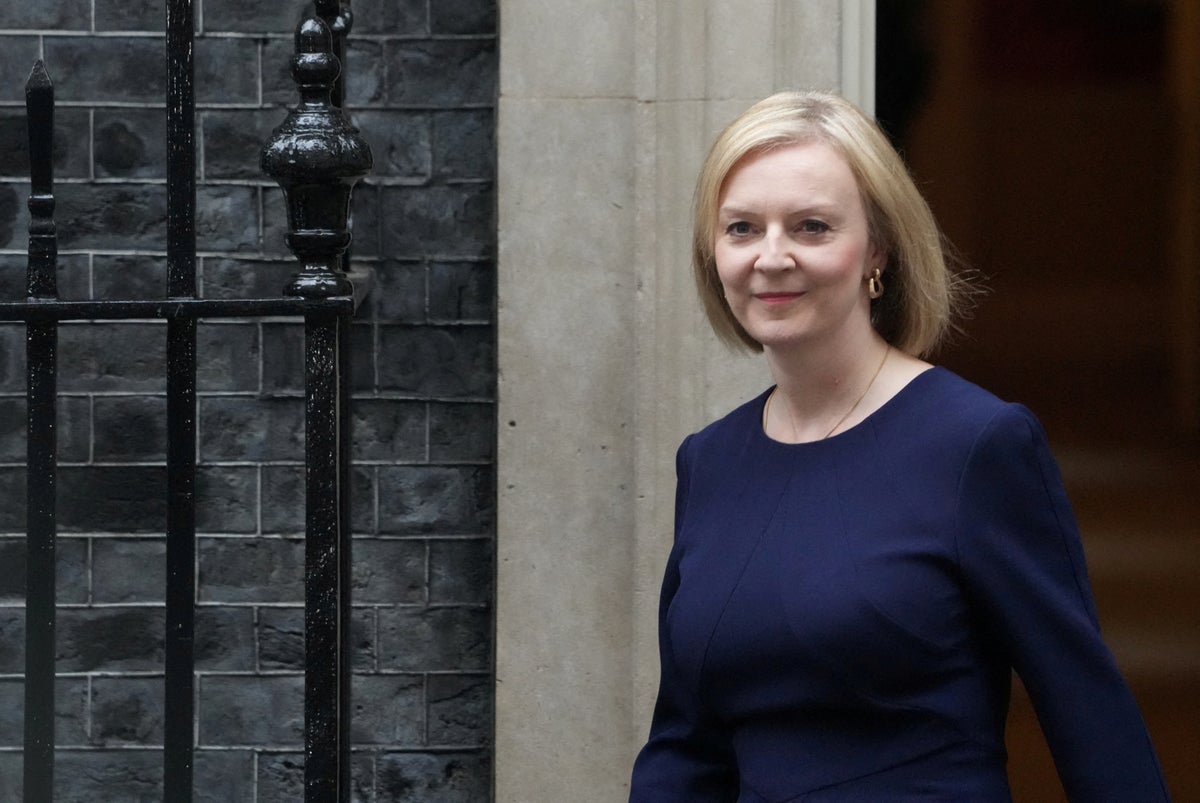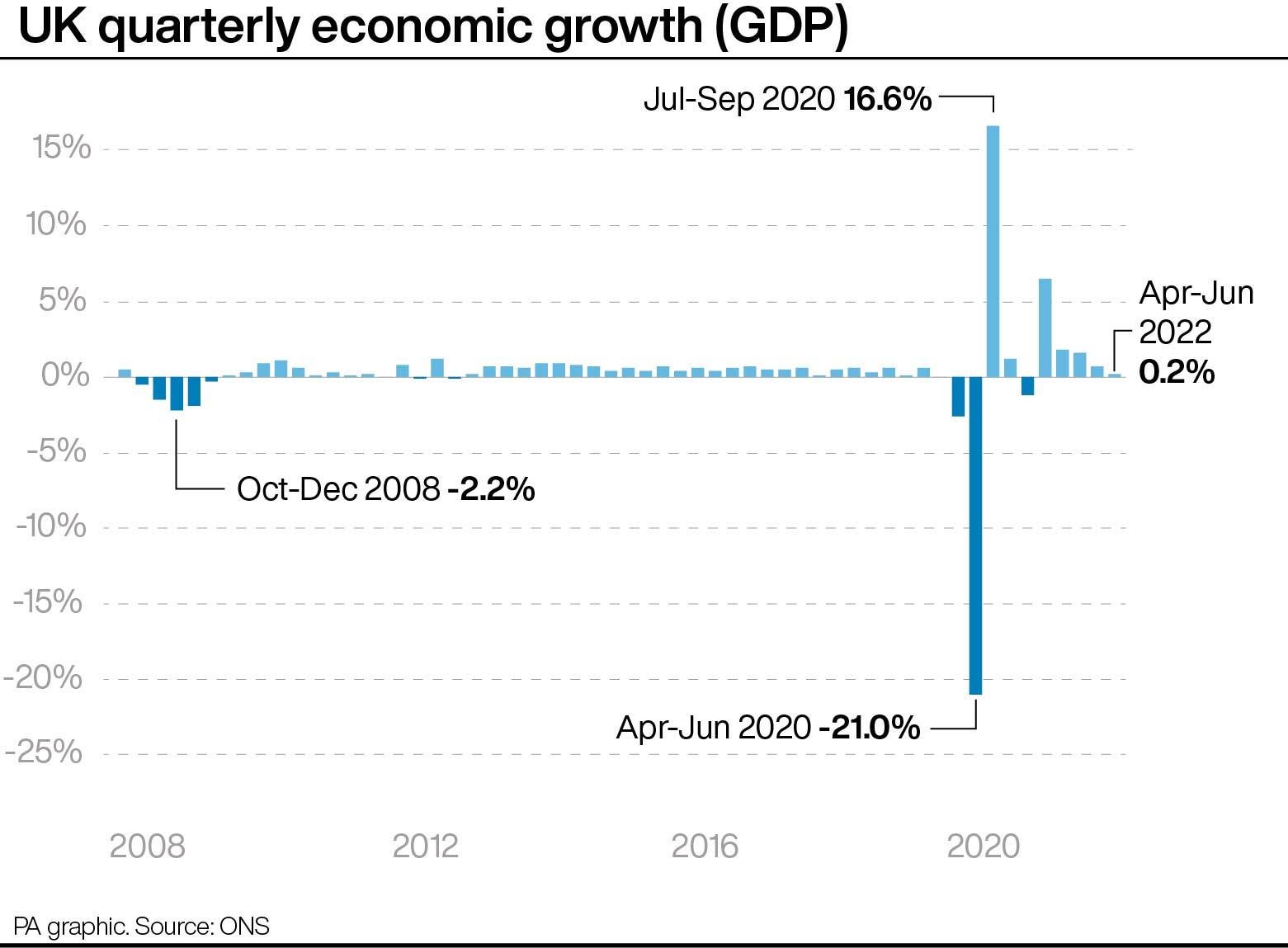
Most new prime ministers can expect a honeymoon period in the months after taking office. But a new poll for The Independent suggests that Liz Truss will arrive at her first Conservative conference after 25 days as leader on Sunday with a significant chunk of the electorate – and even her own party’s supporters – firmly set against her.
A series of surveys released on Thursday night showed Tories under Truss trailing Labour by anything between 17 and 33 points – enough to send Keir Starmer to Downing Street with a majority to match Tony Blair’s historic victory.
Now a Savanta poll for The Independent reveals the depth of voter dissatisfaction with the new PM, who was selected by a tiny group of 175,000 Conservative members after the resignation of Boris Johnson earlier this year.
Taken over the weekend, following the market turmoil resulting from Kwasi Kwarteng’s poorly received mini-Budget but before the interventions of the IMF and Bank of England, the survey shows that voters had already formed a deeply negative impression of the new PM.
Some 47 per cent said her tax-cutting policies would fail to boost the economy, against 28 per cent who agreed with her that they would. And 45 per cent said they expected her to be a bad PM – including 25 per cent who said “very bad” – compared to just 33 per cent who thought she would be good.
The poll gave a clear 14-point lead to Labour, on 43 per cent to the Tories’ 29 and 12 for Liberal Democrats. More than one in five of those who voted Conservative in 2019 had abandoned the party, with 16 per cent saying they would now vote Labour and six per cent Lib Dem.
Most worryingly for Ms Truss, more than a quarter (27 per cent) of those who backed Tories in the 2019 general election – giving Mr Johnson an 80-seat majority – said they expected the new leader to perform badly as PM and a third (33 per cent) of them said her policies would be bad for the UK economy.
Tory voters preferred Mr Johnson as PM, with 36 per cent backing him, 26 per cent Truss and 16 per cent her leadership challenger Rishi Sunak, when asked to choose between the three. Among the electorate as a whole, Sunak came out on top on 23 per cent, with Johnson on 21 and Truss trailing in third place on 18.
And the poll delivered a damning verdict on the Conservative Party as it enters an annual conference which can normally be relied upon to deliver some kind of electoral boost.
Voters judged the Tories to be financially reckless rather than prudent by a margin of 53-24 per cent, incompetent rather than competent by 55-26, dishonest rather than honest by 56-20 and divided rather than united by 62-21. Some 68 per cent said they were out of touch with ordinary people, against 19 per cent who said they were in touch. And 53 per cent said their policies were not driven by the UK’s national interest, compared to 30 per cent who said they were.
Alarmingly for party bosses, even among Tory voters, 54 per cent said they were divided, 54 per cent out of touch, 36 per cent financially reckless and 32 per cent incompetent.

Ms Truss’s controversial abolition of the bankers’ bonus cap was opposed by 52 per cent of the electorate, against 23 per cent who backed it. And voters disapproved of her refusal to extend the windfall tax on energy giants to help pay household bills by a margin of 48-22 per cent and opposed her revival of fracking by 34-31 per cent.
Ms Truss’s most popular policy among those taking part in the survey was the package of help with energy bills announced earlier this month, which amounted to a huge U-turn on her insistence during the leadership campaign that she would not offer “handouts”. Some 70 per cent backed the package, estimated to cost £60bn over its first six months, against just 9 per cent who opposed it.
On a string of character issues, Ms Truss trailed behind Sir Keir, with voters viewing him as more competent, strong, intelligent and honest, more in touch with ordinary people and more driven by the national interests of the UK. The new PM came out on top only on patriotism.
When asked if Ms Truss would survive as PM long enough to lead the Tories into the next election, voters were split by 40-40 per cent. Almost a third (30 per cent) of Conservative voters expected her to be ejected before the poll, expected in 20 months’ time in May 2024. And only 30 per cent of voters thought she would be PM after the election has happened, with 55 per cent saying she will be ditched by either her party or the electorate by then.
Savanta’s Chris Hopkins said: “The difference between Liz Truss’ prime ministerial honeymoon and that of Boris Johnson could not be starker. While Johnson enjoyed an almost immediate poll boost, and the united support of his party, Truss’ divisive economic policies have meant that she’s failed to endear herself to the country and is beginning to drive a wedge between her supporters, MPs, and Conservative voters.
“This has allowed Labour to fill a space vacated by the Conservatives, not only on their response to the rising cost of living, but also on economic competence more broadly. Truss now has her own party’s conference to try to claw some of this credibility back, but given the narrative over the supposed honeymoon part of her tenure, it’s hard to imagine how things could pick up in the immediate future.”
Savanta questioned 2,259 adults in Britain on 24 and 25 September.







